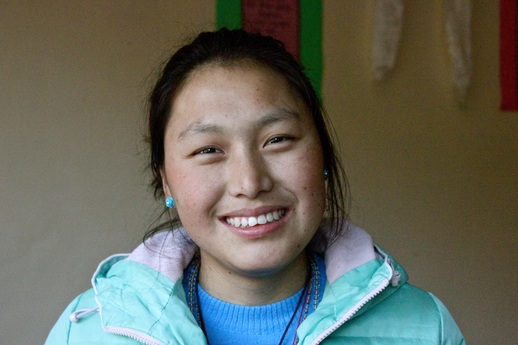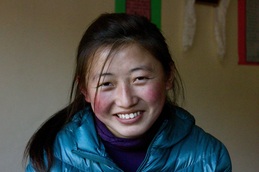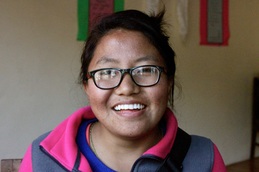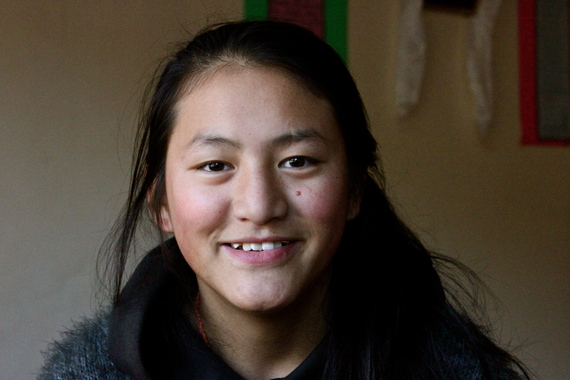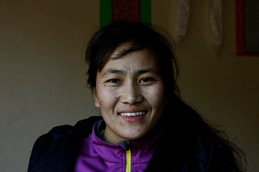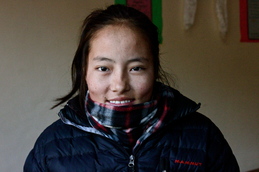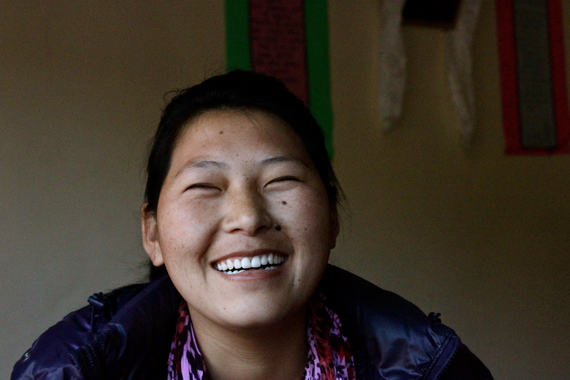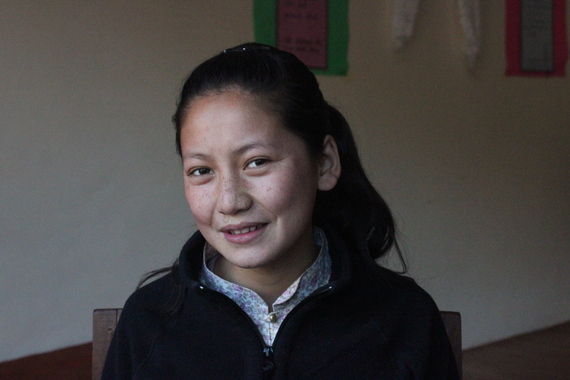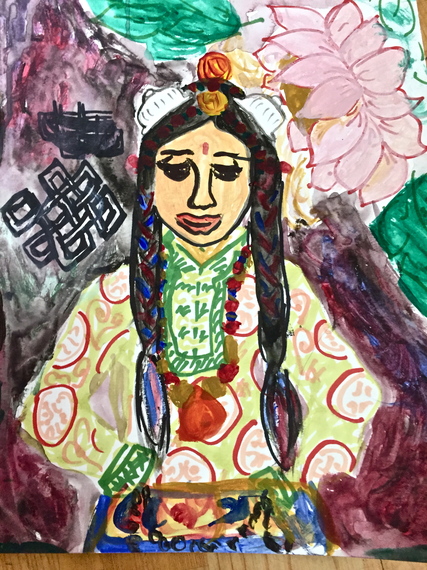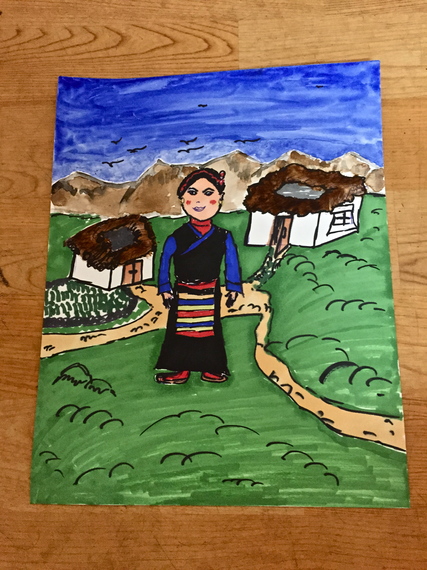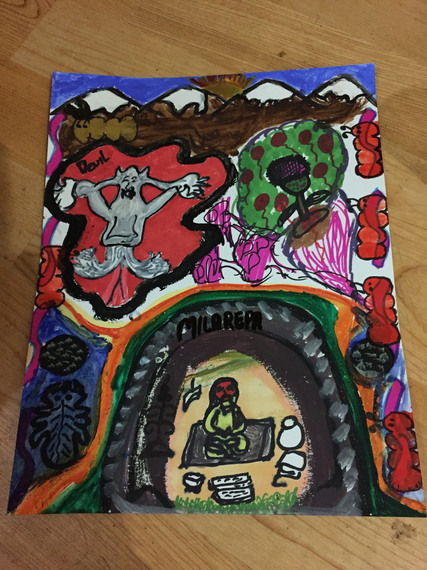
"When you get up in the morning the first thing you should do is smile / Smile because you woke up and waking up is not a small thing / So many millions of people slept last night and didn't wake up today, but you woke up." - Tenzin Dolma, 17 years
This is how we begin each class: A friend and I arrive to a line of shoes outside the doorway of a classroom in Tibet World, a non-profit volunteer organization in McLeod Ganj, India. It is cold, and our students sit huddled under blankets looking at the whiteboard. "Hello, Teachers," they chorus when we arrive. Most of the markers are out of ink, but there is a bright green sharpie, which we use to write vocabulary words and example sentences on the board. One student reads St. Vincent Millay's,"Afternoon on a Hill," in front of the others -- a sample poem to inspire the class's writing exercise and encourage vocal participation. Class-by-class we work our way through types of poetry -- haikus, sonnets, free verse, and ballads.
Our students are young women between the ages of fifteen and twenty-three, apart from one seven-year-old student who joins us to draw and write short essays and stories. At first, they are shy -- almost bashful. When we ask them to share their writing they look down. My colleague and I attribute this silence to an underlying lack of self-confidence. We wonder how to help them become more assertive-- more comfortable vocalizing their opinions and insights.
One day, at the end of class, Ishi, a seventeen-year-old student speaks up. "Why are you just working with the girls?" she asks. "You should work with the boys, too. They want to learn and practice their English." Her eyes are bright; her voice is strong. When we explain that we are working on a girls' empowerment project, our students nod, "Oh, okay." But they seem confused. Ishi's comment, spoken clearly and openly, is our first clue that we might be misunderstanding class dynamics. Through later conversations it becomes clear that our students' seeming shyness stems from a different cultural conception of confidence -- a deeply ingrained respect for listening, coupled with the understanding that humility is a form of strength.
In many ways this notion of confidence contrasts with Western ideals of extroversion and active participation. But there is something profoundly grounded about the way confidence is embraced and manifests among our students. After our first few classes they bring in notebooks filled with personal writing, and ask us to correct their poems and stories; they are eager to make them better, regardless of the feedback. When they receive criticism they respond proactively with notes in the margins, "Teacher, how can I make this better?" They are honest and pragmatic, but also hopeful -- buoyed by the prospect of future careers that will allow them to serve the Tibetan community. For these young women, the motivation behind self-betterment through education stems from an intrinsic sense of self-confidence. It may not be the type of self-confidence we have come to appreciate and recognize in the West, but it is just as powerful.
...
In late February, when most of the students return to Mandi, India, for boarding school at the Suja branch of Tibetan Children's Village, they leave me with themed poems and paintings. Their last assignment, on personal heroes, not only sheds light on traditional values and ideals; it highlights how confidence is informed by the people we admire and the grace inherent in acknowledging that admiration. Spoken through images and written anecdotes, the 'exhibit' below pays tribute to a remarkable group of young women:
"My hero is my Grandmother." Painting by Rinchen Pema, 16 years
You loved me,/You, who gave me such a valuable human life/And being my mother,/you are the symbol of all women. - From "My Mother." Tsewang Lhamo, 23 years old
"Her eyes shine like the sun/Her hands are a warm cloth./In the beginning she advised me/So I would do better." - From "My Ama-la." Chodron, 20 years old
"You are my hero, oh my grandmother,/You fill my stomach with choices of food,/
You are my joker; I am your laughter,/You improve my personality when I am in a bad mood. - From "My Grandmother." Rinchen Pema, 16 years old
"In Spring, I was born in eastern Tibet, in a place called Tonpa. I grew up under the care and love of my parents. My mother was kind and compassionate. She brought me into this wonderful world." - From "My Hero." Yangchen, 21 years old
